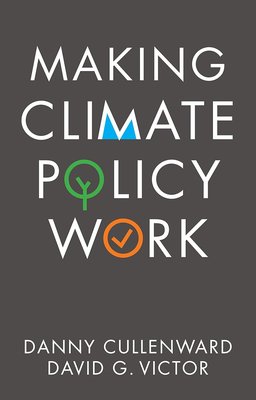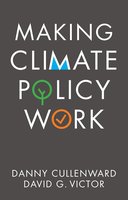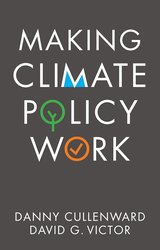In August, Joe Biden signed into law the Inflation Reduction Act, which included $392 billion towards a new climate budget — the single largest investment in emissions reduction in U.S. history. The CHIPS and Science Act and the Bipartisan Infrastructure Act bring that number up to around $450 billion. All of that spending is designed with one major objective in mind: to put the United States on a path to a decarbonized economy, with the goal of reaching net zero emissions by 2050.
Achieving that goal is perhaps the single most important challenge of our age. And so I wanted to dedicate a full episode to it. How big is the task of decarbonizing the U.S. economy? What do we actually need to do to get there? How does the I.R.A. help do that? And what are the biggest obstacles still standing in our way?
Jesse Jenkins is an assistant professor of mechanical and aerospace engineering at Princeton University and leads the Princeton ZERO Lab. He was a lead author of the Net Zero America report, the most comprehensive attempt to map out the different pathways to decarbonization I’ve seen. He also leads the REPEAT Project, which has done some of the most in-depth modeling of how the Inflation Reduction Act and other climate policies could affect emissions.
As a result, this conversation ended up being the single clearest explanation I’ve heard of both the path to decarbonizing America and the impact the Biden administration’s climate bills could have on that effort. I learned a ton from this one, and I think you will too.
Book recommendations:
Making Climate Policy Work by Danny Cullenward and David G. Victor
“Sequencing to Ratchet Up Climate Policy Stringency” (academic paper) by Michael Pahle, Dallas Burtraw, Christian Flachsland, Nina Kelsey, Eric Biber, Jonas Meckling, Ottmar Edenhofer and John Zysman
How Solar Energy Became Cheap by Gregory F. Nemet
Thoughts? Guest suggestions? Email us at
[email protected].
You can find transcripts (posted midday) and more episodes of “The Ezra Klein Show” at nytimes.com/ezra-klein-podcast, and you can find Ezra on Twitter @ezraklein. Book recommendations from all our guests are listed at https://www.nytimes.com/article/ezra-klein-show-book-recs.
“The Ezra Klein Show” is produced by Annie Galvin and Rogé Karma. Fact-checking by Michelle Harris, Mary Marge Locker and Rollin Hu. Original music by Isaac Jones. Mixing by Carole Sabouraud and Isaac Jones. Audience strategy by Shannon Busta. Special thanks to Kristin Lin and Kristina Samulewski.





